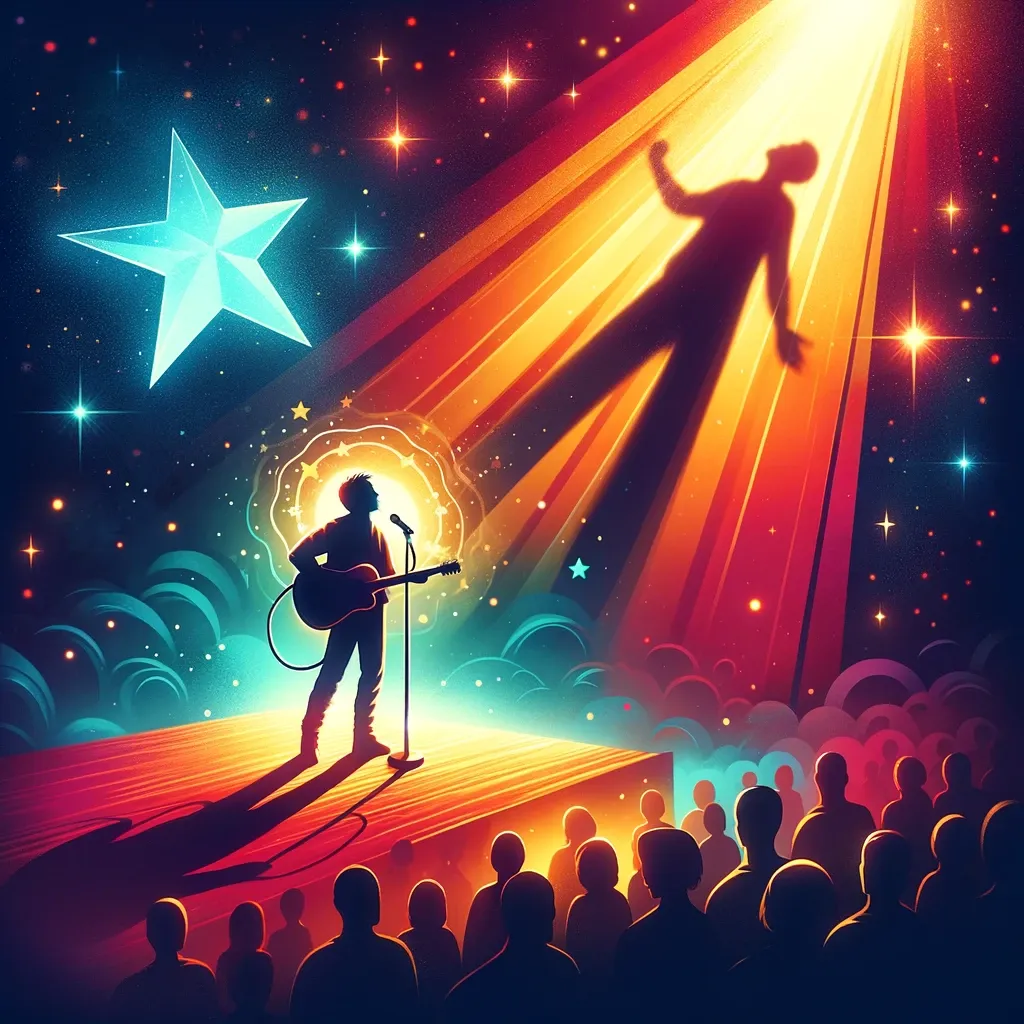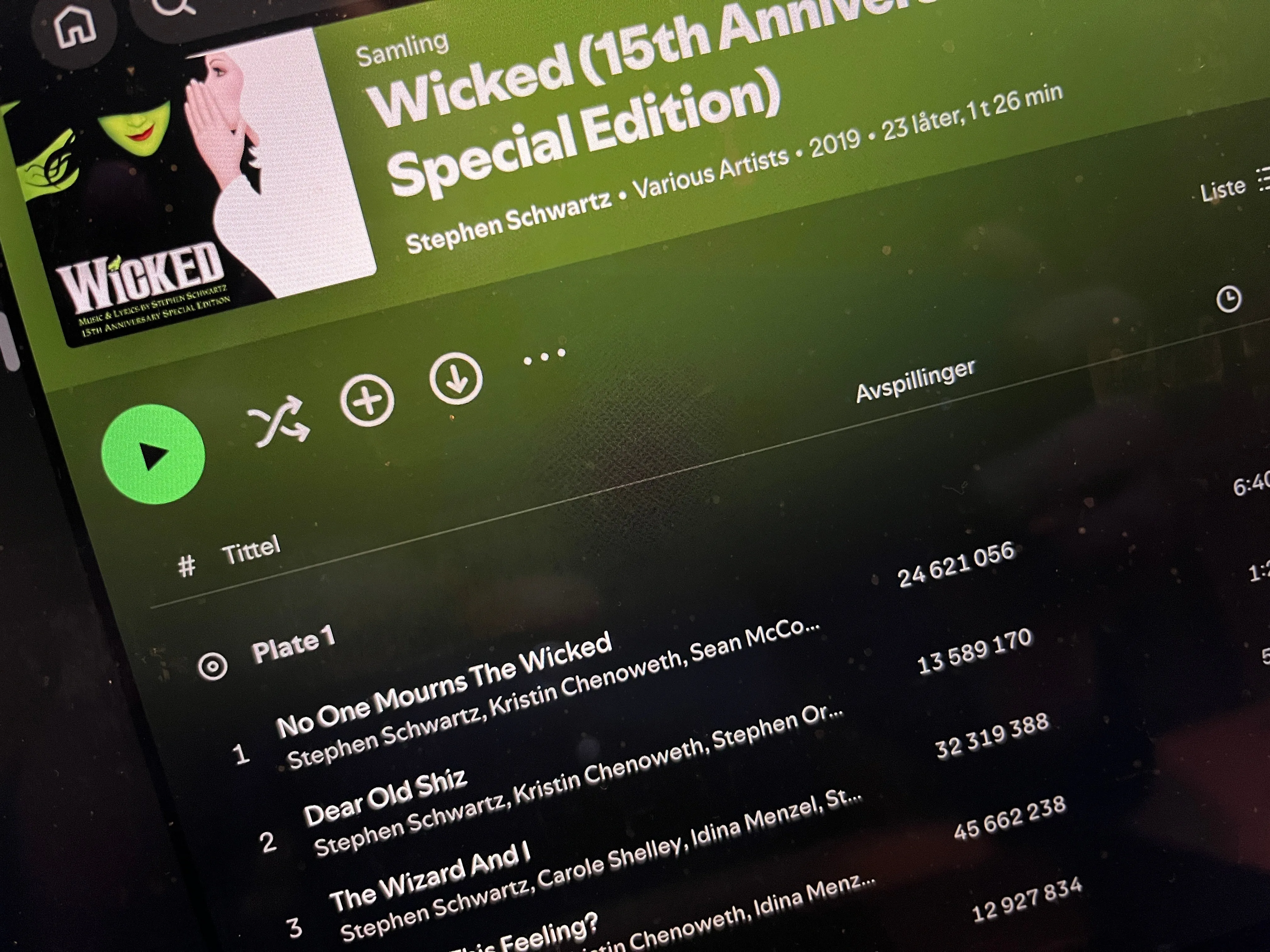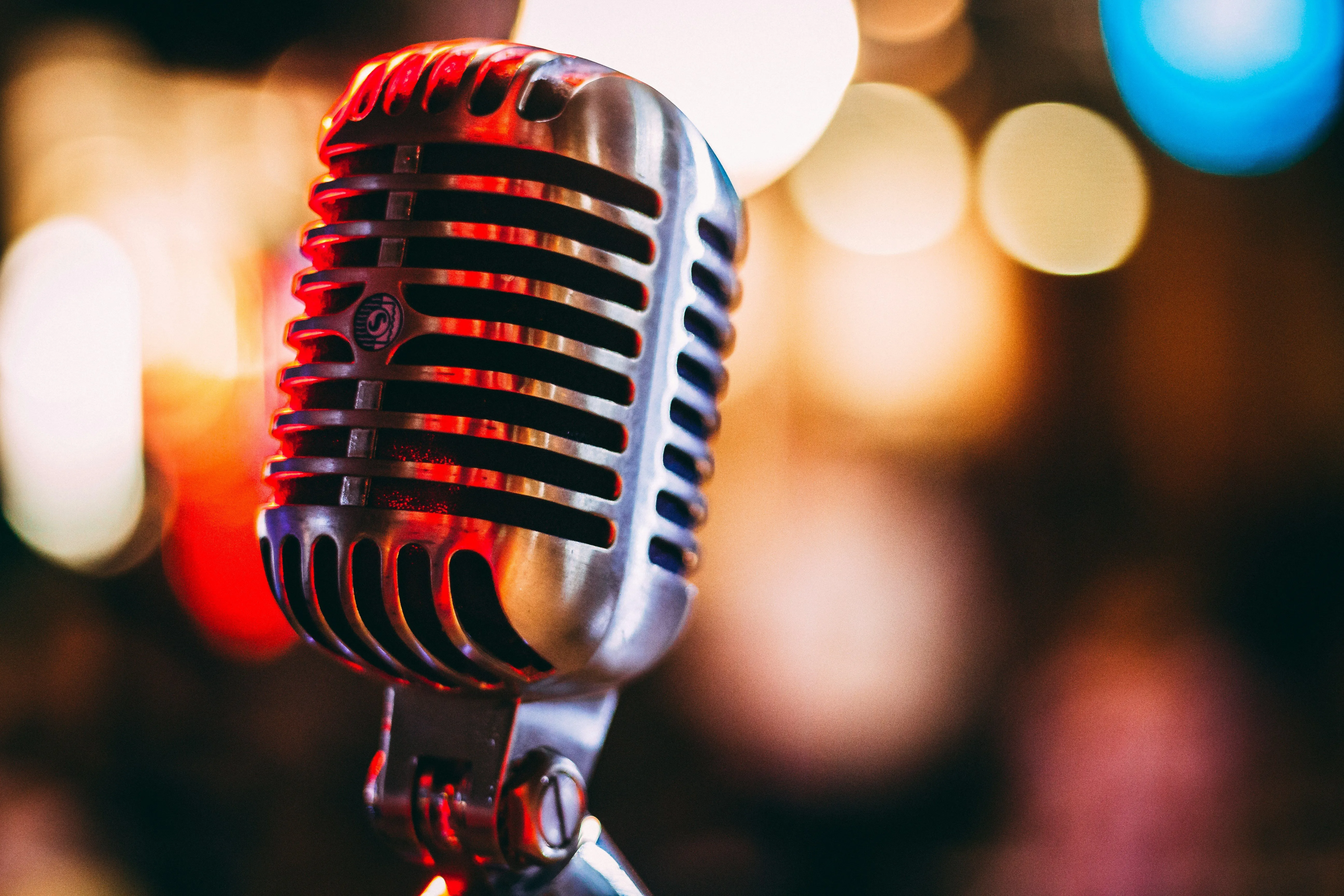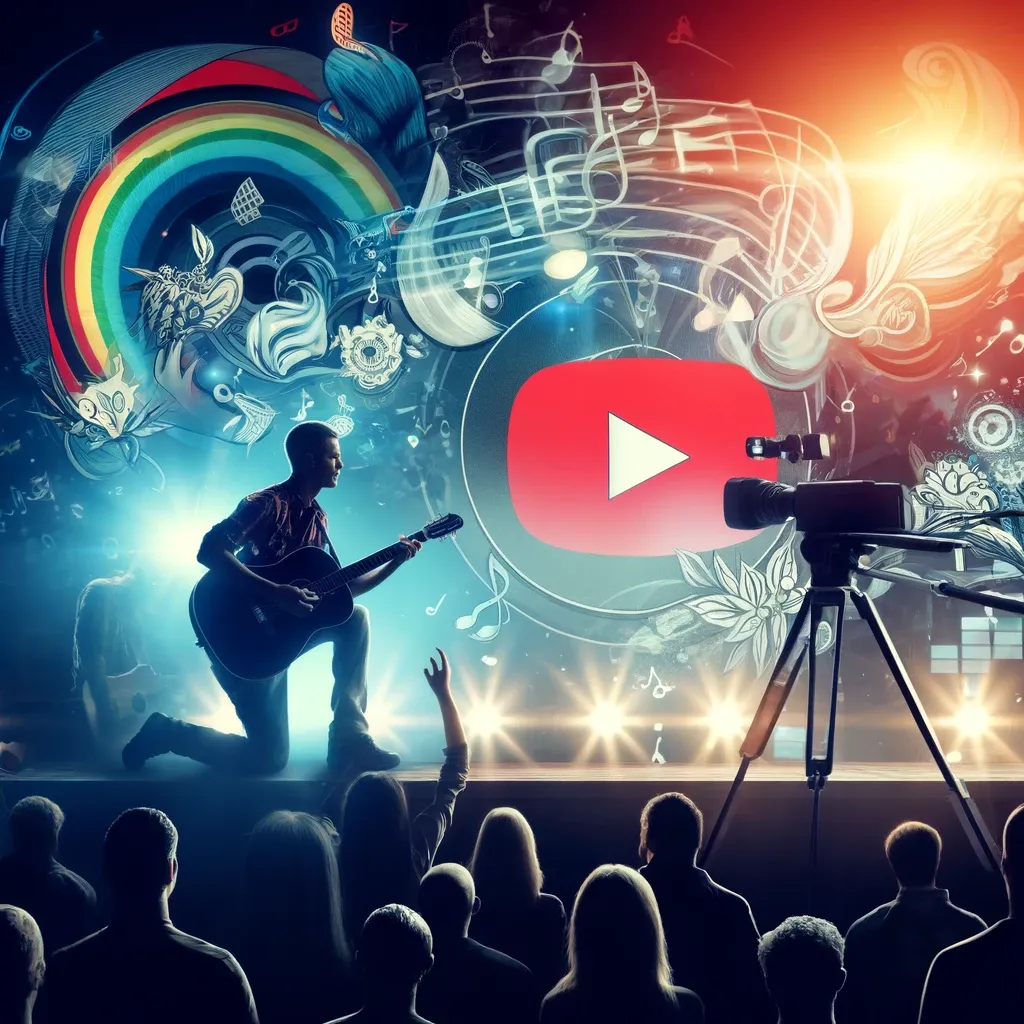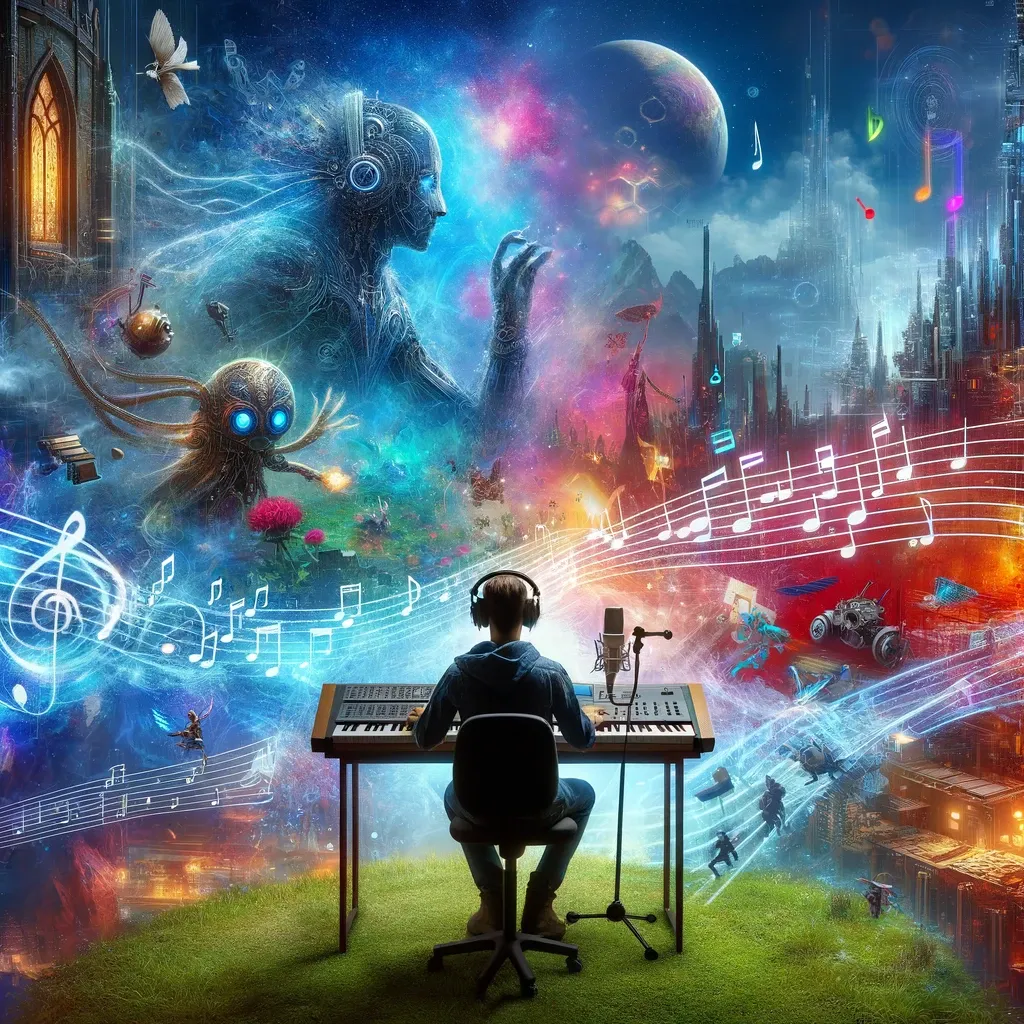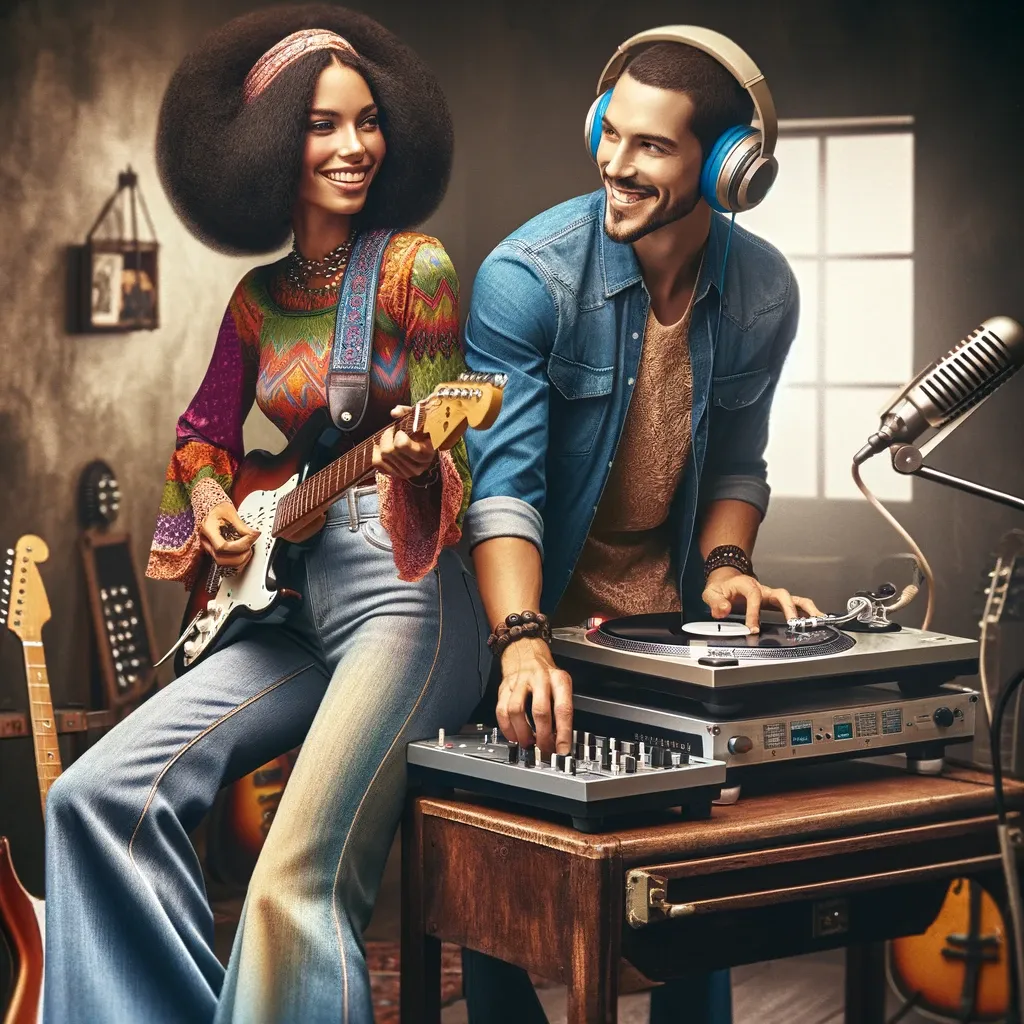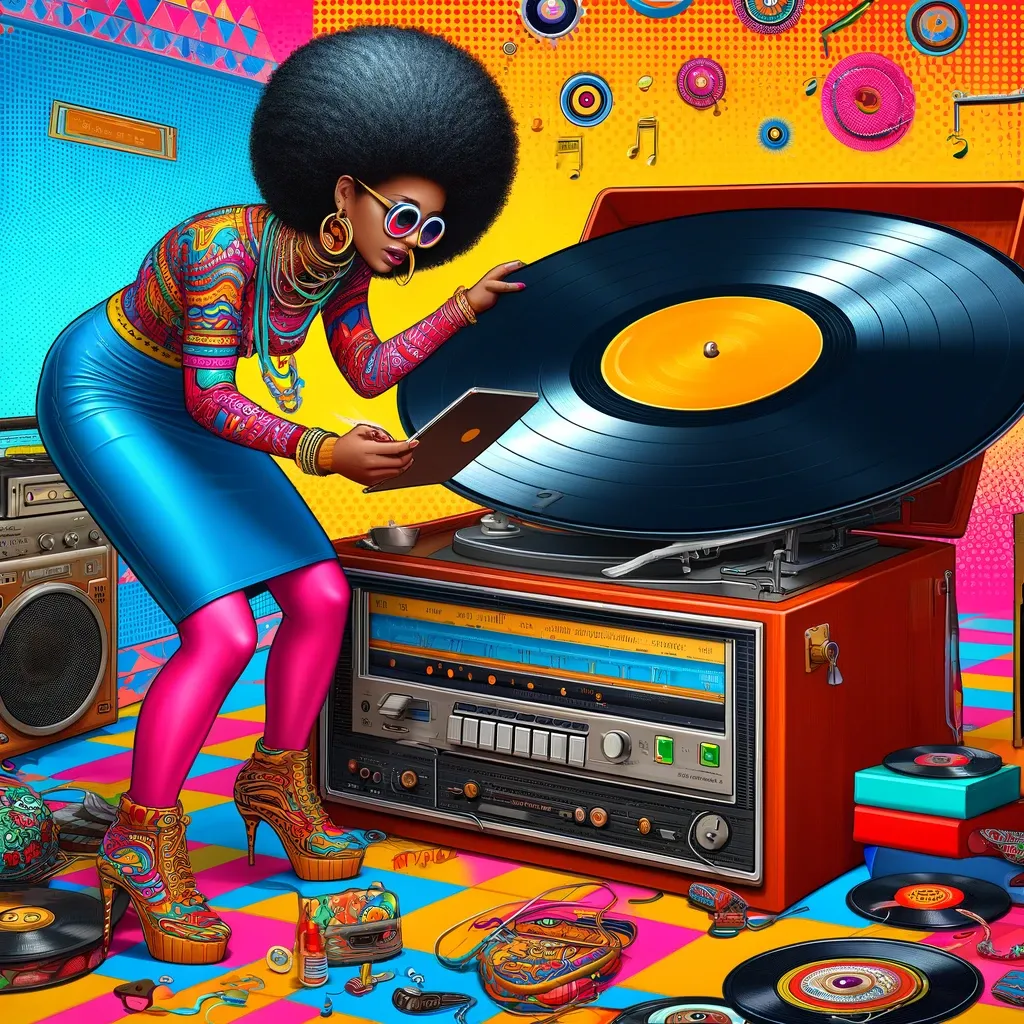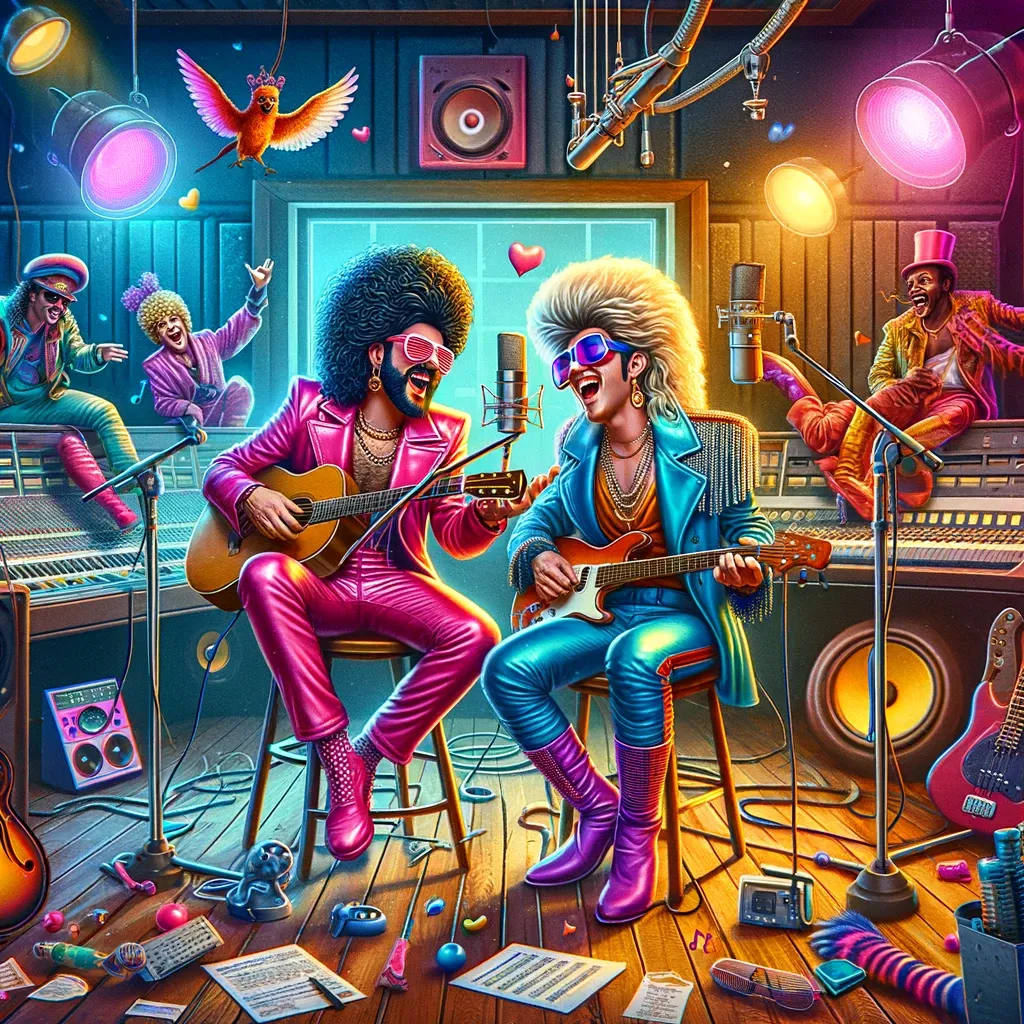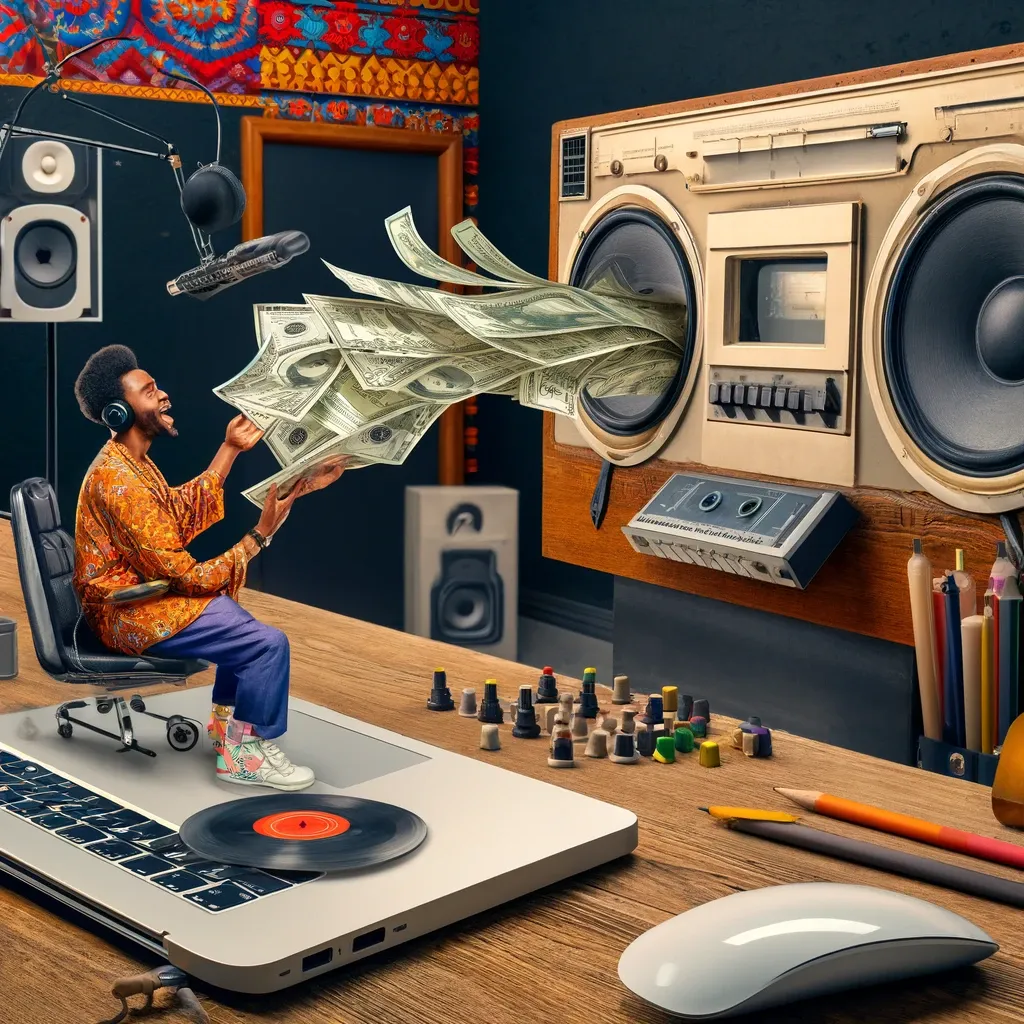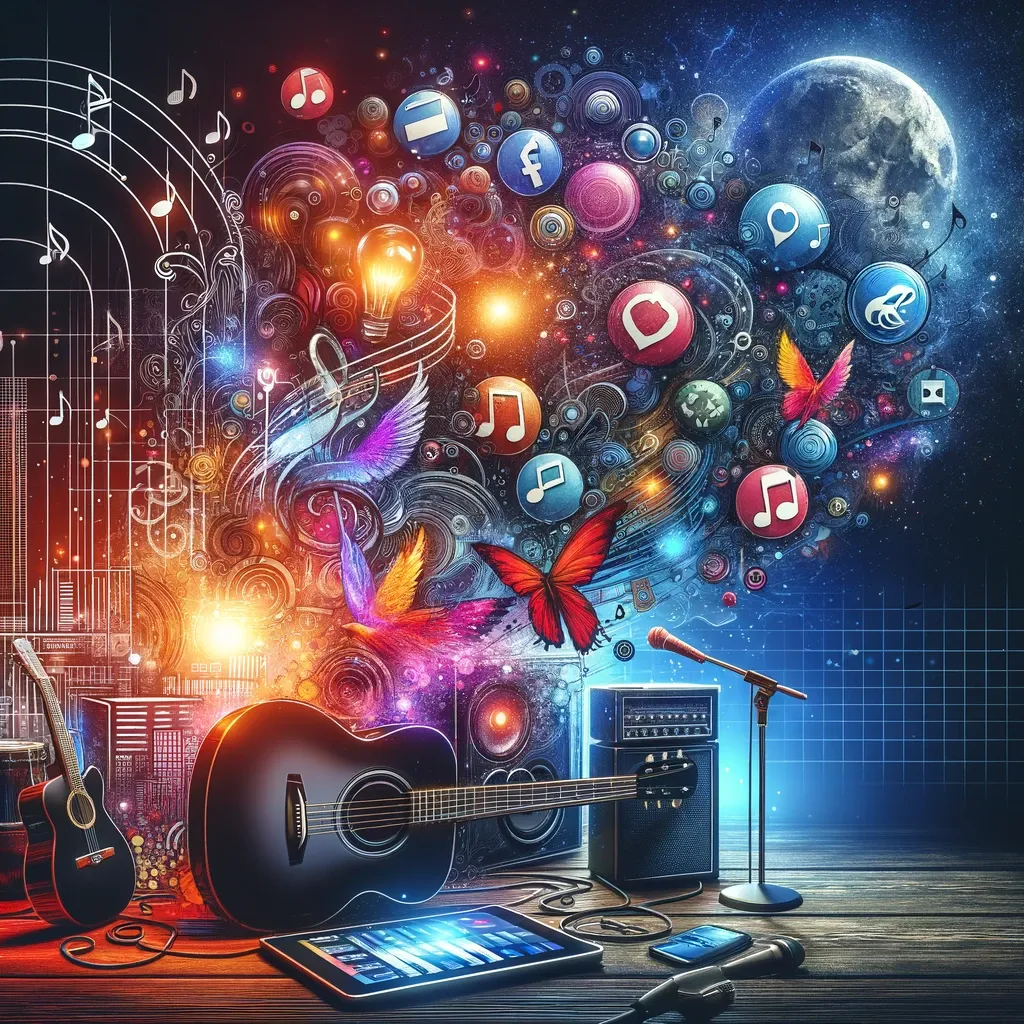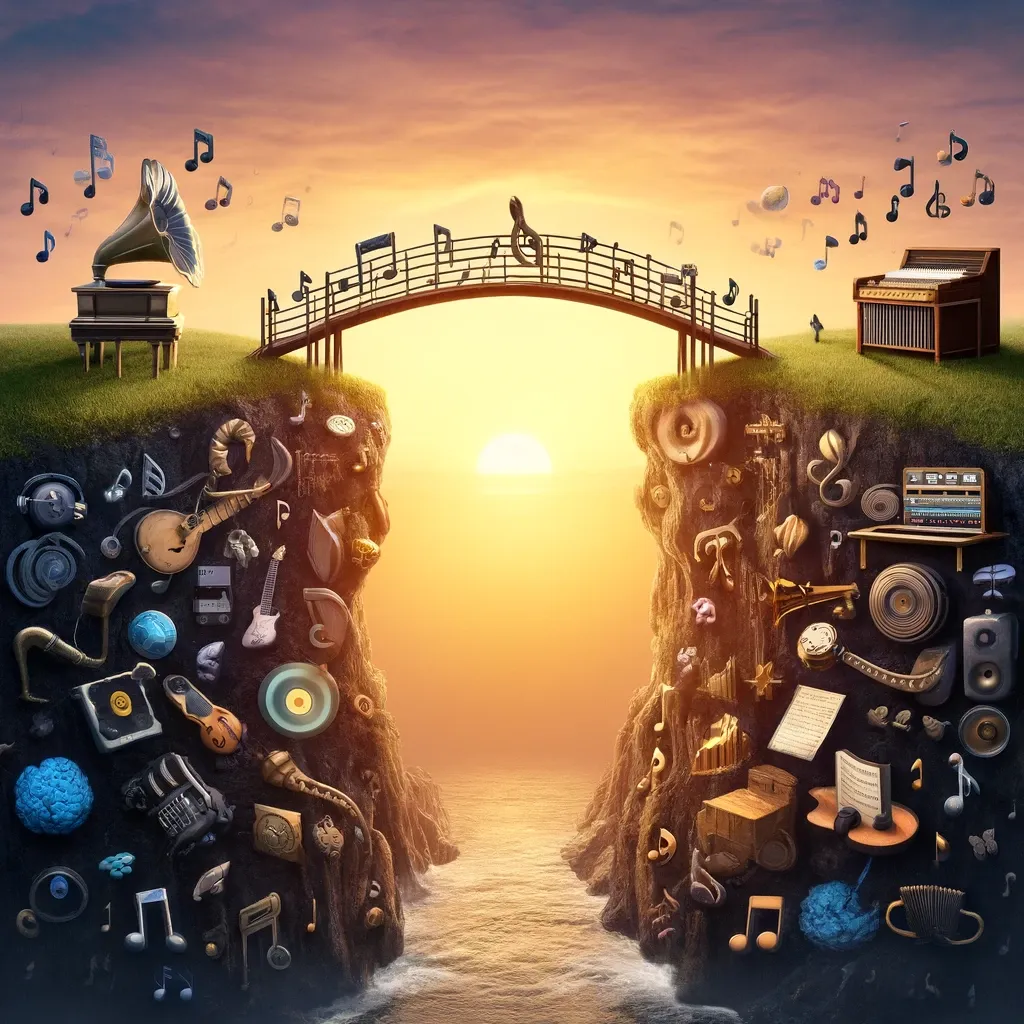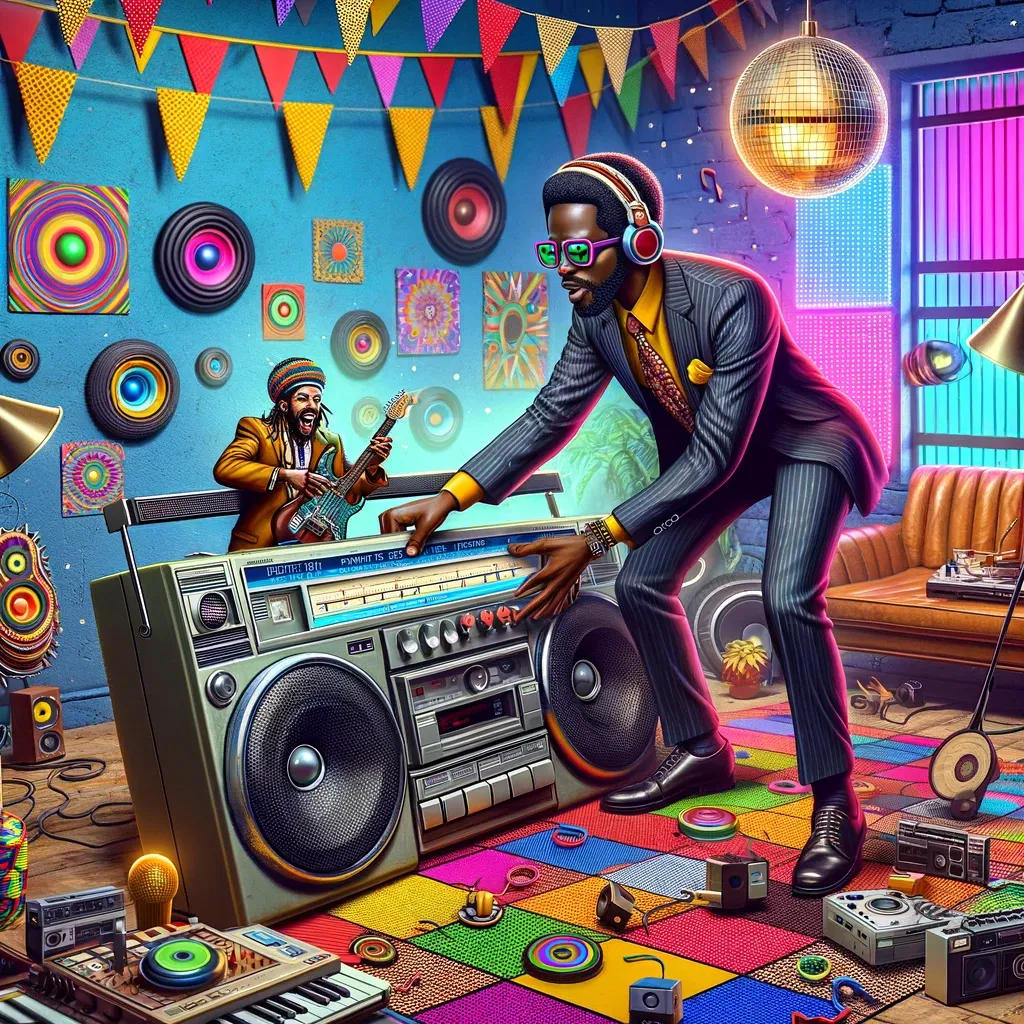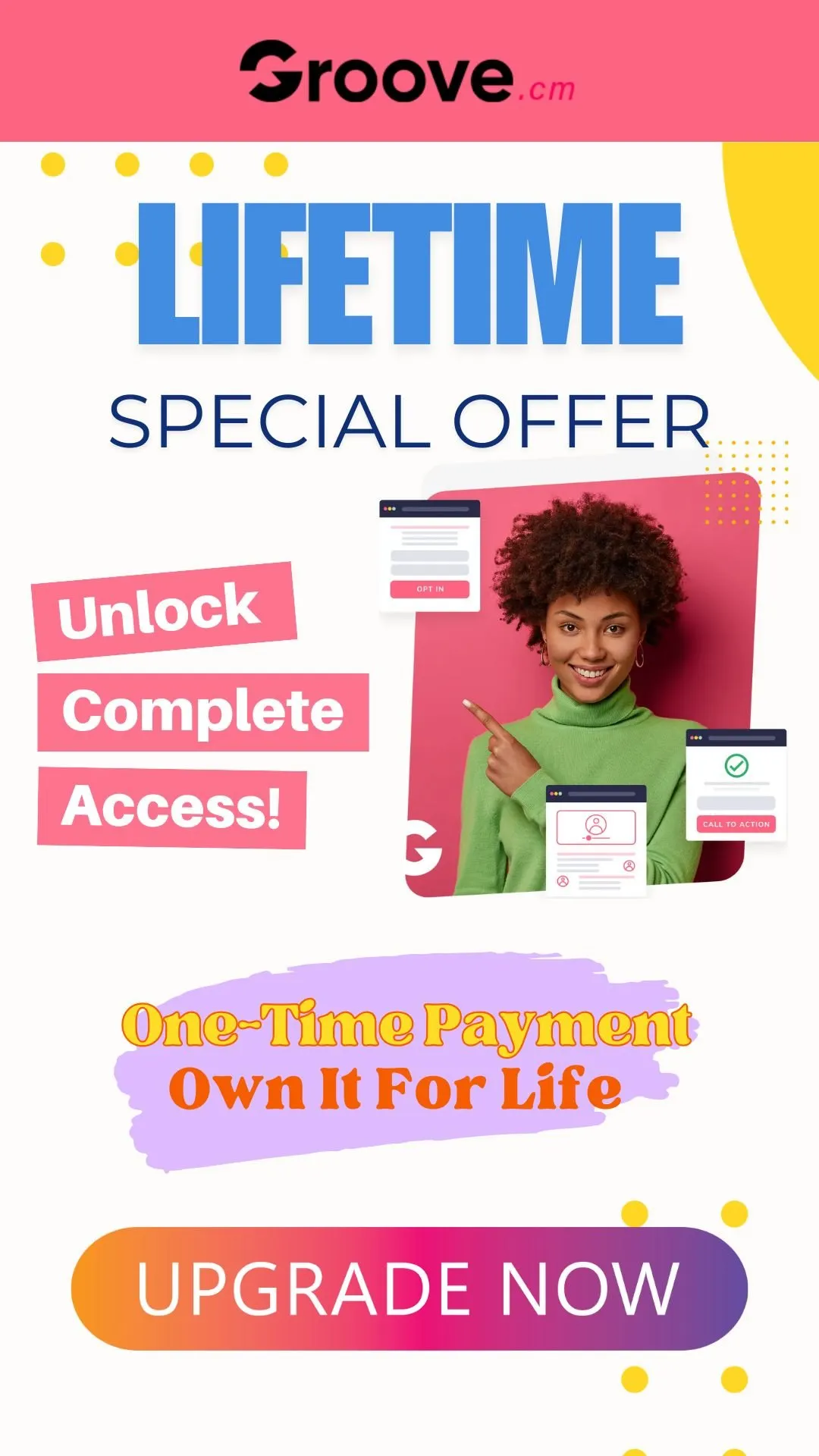How to Become an Independent Music Artist: The Ultimate Guide
Becoming an Independent Music Artist is Exciting! 🎵
You get to control your music and make all the decisions...

You get to control your music and make all the decisions...
But, it also means working hard and being smart about it. Here’s how you can do it:
1. Find Your Brand and Sound
Who Are You?
Think about who you are as an artist. What message do you want to share? Knowing this helps you make decisions about your music and look. Look at artists like Beyoncé or Billie Eilish—they have a clear style everyone knows. You should have a clear style too.
Discover Your Core Identity
Start by reflecting on your personal experiences, values, and inspirations. What drives you to create music? Your core identity is the foundation of your artistic persona. Ask yourself these questions:
- What themes and messages are important to me?
- What life experiences have shaped my perspective?
- Who are my biggest musical influences, and why?
- What do I want my audience to feel when they listen to my music?
Answering these questions will help you understand who you are as an artist.
Define Your Message
Your message is what you want to communicate to the world through your music. It can be anything from promoting social change, sharing personal stories, or spreading joy and positivity. Here are a few examples:
- Empowerment: Songs that inspire and uplift, encouraging listeners to believe in themselves and their abilities.
- Storytelling: Sharing personal experiences or fictional tales that resonate emotionally with your audience.
- Advocacy: Using your music to bring attention to important social issues and encourage action.
Having a clear message helps you connect with your audience on a deeper level and gives your music a purpose.
Crafting Your Visual Style
Your visual style is how you present yourself to the world. It includes everything from your clothing and stage presence to your album artwork and social media profiles. Consistency in your visual style makes you easily recognizable. Consider the following:
- Fashion: Choose outfits that reflect your music's vibe. Whether it's edgy, casual, glamorous, or eclectic, your clothing should complement your sound.
- Imagery: Use consistent colors, fonts, and graphics in your promotional materials. This creates a cohesive look across all platforms.
- Performance: Think about your stage presence and how you interact with your audience. Your live performances should reinforce your brand identity.
Look at Examples
Studying successful artists can provide inspiration for developing your own style. For instance:
- Beyoncé: Known for her empowering music and polished, glamorous style. Her performances are powerful and meticulously choreographed, reflecting her brand of strength and elegance.
- Billie Eilish: Recognized for her unique voice and edgy, unconventional style. Her oversized clothing and dark, moody visuals align with the themes of her music, creating a distinctive and memorable brand.
By looking at these examples, you can see how a clear and consistent identity helps artists stand out and build a loyal fan base.
Create a Mood Board
A mood board is a great tool to visually map out your brand. Collect images, colors, fonts, and other elements that resonate with your artistic vision. This can include:
- Photos of fashion styles you like
- Album covers that inspire you
- Color palettes that match the mood of your music
- Inspirational quotes or messages
Refer to your mood board when making decisions about your music and visuals to ensure everything aligns with your brand.
What Makes You Special?
There are many talented musicians, so you need to be unique. What makes your music different? Maybe it’s your voice, the stories in your songs, or how you mix different types of music. Find what makes you special and focus on that.
Share Your Message
Music is powerful. It can make people feel different emotions. What do you want people to feel or think when they hear your songs? Your message could be about changing the world or sharing personal stories. A clear message helps you connect with fans.
Match Your Sound and Look
Your music and look should go together. If you make loud, fast music, your look should match that. If you sing soft, calm songs, your look should be gentle too. This helps people remember you.
Grow but Stay True
It’s important to stay true to yourself, but don’t be afraid to change and grow. Just make sure any changes fit with your core message and style.
2. Hone Your Craft
Honing your craft is the key to becoming an outstanding independent music artist. It’s more than just playing music; it's about making it truly special. Here’s how you can get really good at it:
- Keep Learning No matter how good you are, there’s always something new to learn. Take music lessons or find online courses to get better. Even the best musicians keep learning and trying new things.
- Practice, Practice, Practice Practice is super important. Make sure to set aside time each day to practice your instrument or your singing. Practicing regularly helps you improve steadily over time.
- Write and Create Songs Spend time writing and making new songs. Don’t worry if not every song is amazing. Writing often helps you find your style. Try different kinds of music and lyrics to see what works best for you and your fans.
- Quality Over Quantity Focus on making a few really great songs instead of many okay ones. A single well-made song can make a big impact. Take your time to make each song the best it can be.
- Collaborate with Others Working with other musicians can bring fresh ideas and new techniques. It’s a great way to learn and create something unique together.
3. Build a Home Studio 🎙️
You don’t need an expensive setup to start recording music at home. A good computer, digital audio workstation (DAW), quality microphone, and some basic soundproofing can go a long way. This allows you to produce music on your own schedule and experiment with different sounds.
Starting Small: The Essentials
- Good Computer: Your computer is the heart of your home studio. You don’t need the latest model, but it should have sufficient RAM and processing power to handle your DAW and plugins without crashing or lagging.
- Digital Audio Workstation (DAW): Your DAW is the software you’ll use to record, edit, and produce your music. Popular choices include Ableton Live, Logic Pro X, FL Studio, and Pro Tools. Many DAWs offer free trials or entry-level versions, allowing you to find one that suits your workflow.
- Quality Microphone: A decent microphone is essential for capturing clear, high-quality vocals and instrumentals. Condenser microphones are generally preferred for their sensitivity and clarity, but I use dynamic microphones in many situations because they give me better control in a noisy environment.
- Audio Interface: An audio interface converts your analog signals (like your voice) into digital ones that your computer can process. Look for one with multiple inputs if you plan on recording several instruments simultaneously.
- Headphones/Monitors: Invest in good quality headphones or studio monitors to accurately hear your recordings and mixes. This ensures that your tracks sound good across various playback systems.
- Acoustic Treatment: Treating your room with acoustic panels, foam, or even DIY solutions like thick curtains can drastically improve your recording environment by minimizing echo and outside noise.
Remember, building your home studio is an investment in your music career. Start with the essentials and upgrade as you grow. 🎧🎹
4. Engage with Your Audience 🎤
Engaging with your audience is super important for your music career. It’s like building a big family of fans who love your music. Here’s how you can do it:
- Respond to Comments and Messages When fans comment on your posts or send you messages, take the time to reply. If someone says they love your new song or asks about your next show, answer them. This shows you care about your fans, and it can turn casual listeners into true fans.
- Talk to Your Fans Don't just reply to comments—start conversations! Ask your fans questions, get their opinions, and create fun polls. This makes them feel involved and helps you learn what they like about your music.
- Show Your Appreciation Thank your fans for their support. Give shoutouts to your biggest supporters, and share fan art or covers of your songs. This makes your fans feel special and appreciated.
- Host Live Q&A Sessions Live Q&A sessions are a great way to talk to your fans in real time. Use platforms like Instagram Live or YouTube Live to answer their questions. This helps fans get to know you better.
- Virtual Concerts Virtual concerts are a cool way to reach fans all over the world. You can perform from your home and stream it online using platforms like Twitch or YouTube Live. Fans love exclusive performances, and you can even earn money from tips or ticket sales.
Perform Live
Live performances are exciting and help you connect with your fans. Here’s how to get started:
- Start Small: Local Venues and Open Mics
- Begin by performing at local venues or open mic nights. These are great places to gain experience and build a local fan base.
- Build Confidence and Experience
- Each performance helps you become more confident. Pay attention to how the audience reacts and use that to improve your shows. Over time, you’ll get really good at performing live.
- Open for Larger Acts
- Once you have some experience, try to open for bigger artists. This can help you reach their fans and get more exposure.
- Organize Your Own Shows
- As you gain more fans, think about organizing your own shows. You can choose the venue and set the ticket prices. Platforms like Eventbrite can help you sell tickets and promote your shows.
The Role of Marketing
Marketing helps you reach new fans who might not know about you yet. It’s not just about selling tickets or getting followers; it’s about connecting with people who will love your music.
Overcoming Common Concerns
Some artists think only big record labels can make them famous. But platforms like Spotify and YouTube show that independent artists can be very successful too. Use these tools to your advantage.
Balancing Social Media Efforts
It’s normal to feel overwhelmed by social media. Focus on one or two platforms where your fans are most active. Consistency is important—post regularly to keep your fans engaged.
Customer-Centric Approach
Listen to your fans and understand what they like. Tailor your music and content to meet their needs. This makes your fans happy and builds long-term relationships.
Practical Tips for Engagement
- Schedule Regular Posts: Consistent posting keeps your audience interested.
- Create Engaging Content: Share behind-the-scenes videos, teasers for new releases, and interactive posts.
- Use Analytics: Tools like Facebook Insights and Twitter Analytics can show you what your fans like best.
- Host Contests: Fun contests like “caption this” or “fan art submissions” can boost engagement.
- Leverage Email Newsletters: Keep fans updated with exclusive content and upcoming events.
Real-Life Example
I know an indie artist who struggled with social media at first. By focusing on Instagram and posting behind-the-scenes content, she saw a big increase in follower engagement in just a few months.
5. Network
The music industry thrives on relationships. Attend industry events, join online communities of musicians and producers, and collaborate with other artists. Networking can open doors to new opportunities and valuable mentorships.
Attend Industry Events
Attending music industry events such as conferences, festivals, and local gigs is a great way to meet people who share your passion. These events provide opportunities to connect with producers, other musicians, A&R representatives, and even potential fans. Make it a habit to attend these events regularly and always carry business cards or promotional materials.
Join Online Communities
In today's digital age, joining online communities of musicians and producers is invaluable. Platforms like Reddit’s r/WeAreTheMusicMakers or Facebook groups for indie artists offer spaces to share your work, get feedback, and collaborate. These communities are rich with resources, advice, and opportunities for virtual networking.
Collaborate with Other Artists
"You don’t need a website," my music production teacher said. "You just need to drink beer with a lot of musicians and people in the music industry." And I think he was partly right. Collaboration can lead to some of your most creative work while also expanding your audience base. Working with other artists exposes you to their fan base and vice versa. Plus, it's a fantastic way to learn new skills and techniques.
Marketing Insight
Remember that networking is also about marketing. Think of it as amplifying your message—collaborating with other artists helps you reach people who might not know about your music yet but would love it if they did.
Practical Tips for Networking
- Be Genuine: Authenticity goes a long way in building lasting relationships. People appreciate sincerity.
- Follow Up: After meeting someone new, send a follow-up email or message thanking them for their time.
- Offer Value: Think about what you can offer in return—whether it's your skills, knowledge, or connections.
- Be Active Online: Regularly participate in online discussions and forums relevant to your field.
- Stay Consistent: Networking isn’t just about one-off meetings; consistently nurture your relationships over time.
Building a strong network and engaging with your audience are key steps in your music career. Stay connected, be genuine, and let your passion shine through. 🌟
6. Develop a Long-term Plan 🗺️
Having a long-term vision for your music career can guide your decisions and keep you motivated through challenges. Here’s how you can create and stick to a long-term plan:
- Setting Long-term Goals Think about where you want to be in five or ten years. Do you want to tour around the world, release many albums, or win awards? These big dreams will help you set your long-term goals. Break down these goals into smaller steps that you can work on every day, week, and month.
- Strategic Planning Think of your long-term plan as a map. This map should include milestones like getting more followers, booking bigger shows, or working with famous artists. This helps you stay on track and ensures that every action you take moves you closer to your big goals.
- Flexibility and Adaptation While it’s important to have a plan, be ready to adapt if things change. The music world is always changing, and new opportunities can come up. Being flexible helps you take advantage of these new chances while still working towards your long-term vision.
- Investing in Skills and Resources Keep improving your skills and updating your equipment. Regularly think about what tools or skills you need to reach the next level and invest in them wisely.
Myth Debunking: Big Record Labels vs. Independent Success
It’s a myth that only big record labels can make you successful. Many independent artists do very well on platforms like Spotify and YouTube. Being independent gives you creative freedom and control over your career while connecting directly with your fans. This lets you build a unique and genuine connection with your audience.
Affordability Assurance
You don’t need to work on music full-time to be successful. Many musicians started part-time and grew their careers gradually. By using your time and effort wisely, you can balance music with other commitments without financial strain.
7. Stay Resilient 💪
The journey of an independent artist has ups and downs. It’s important to stay strong and adaptable when facing challenges.
Embrace Setbacks as Learning Opportunities
Every artist faces rejection and obstacles. Instead of seeing setbacks as failures, view them as chances to learn and grow. Each challenge you overcome makes you stronger and more prepared for future hurdles.
Build a Support System
Surround yourself with supportive people—friends, family, or fellow musicians—who can encourage you during tough times. A strong support system can provide the emotional boost needed to stay resilient.
Stay Adaptable
The music industry is always changing with new trends, technologies, and audience preferences. Being adaptable means trying new styles, platforms, and marketing strategies. Flexibility can turn challenges into opportunities for growth.
Focus on Quality Over Quantity
Feeling overwhelmed by social media and marketing is normal. The key is to focus on quality over quantity. Choose one or two platforms that your audience likes most and become really good at using them. Consistency is important, so don’t spread yourself too thin.
Strategic Marketing
Marketing helps you reach more people who might love your music but don’t know about you yet. While word-of-mouth is powerful, marketing helps you grow your fan base beyond your immediate circle. It’s about building connections and growing your fan base in a strategic way.
Empowerment Through Strategy
My goal is to help you build your career efficiently. Instead of feeling overwhelmed by maintaining a presence on many social media platforms, focus on creating a solid foundation for your musical journey through smart marketing tactics.
Believe in Yourself 🌟
Every successful musician has doubts at some point. Stay focused on your passion for music, keep learning and adapting, and most importantly, believe in yourself! You’ve got this!
By developing a long-term plan and staying resilient, you’ll set yourself up for lasting success. Remember, it’s not just about quick wins but about making a lasting impact through consistent effort and strategic planning!
Music Marketing Tools & Resources For Smarter Musicians! 🎶
Get 1007+ new fans without social media burnout! Sign up for the SavvyStar newsletter and free Music Marketing Guide. Unlock the industry's best-kept secrets today!
P.S. Why not see the results for yourself?
Sign up now and watch the difference with your very next gig!
